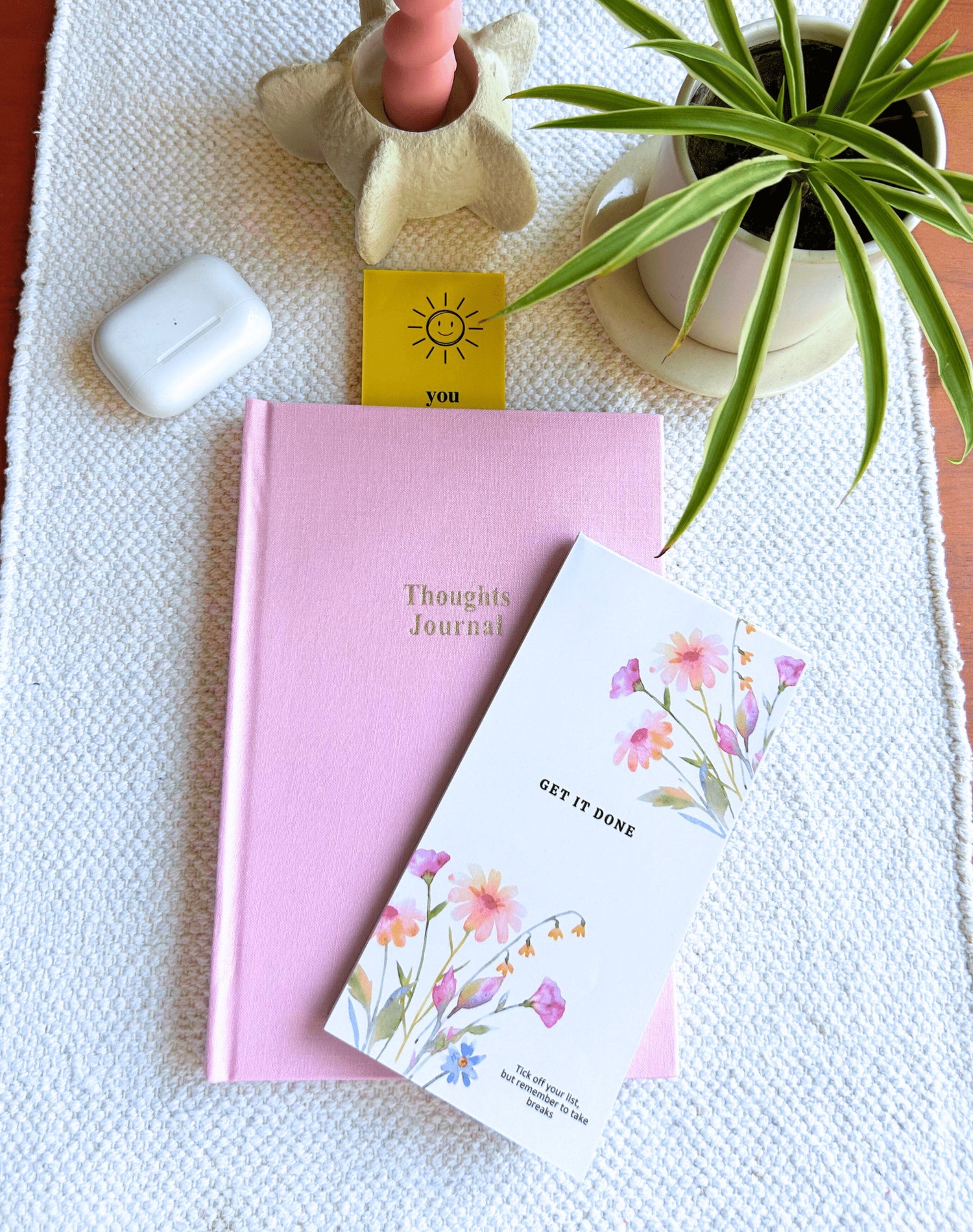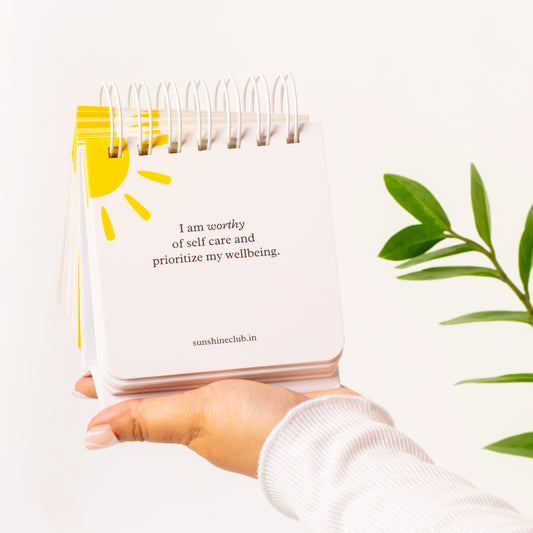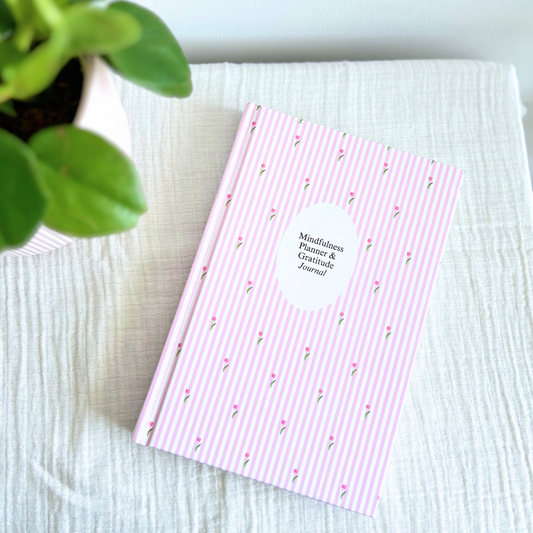
How to make journaling a habit✍🏻📘
Share
Journaling is a powerful tool for self-reflection, creativity, and emotional well-being, but like many good habits, it can be difficult to maintain consistently. Building a journaling habit takes intention, commitment, and a bit of strategy. Here’s a detailed guide to help you incorporate journaling into your daily life in a way that feels both sustainable and rewarding.
1. Start Small and Set Realistic Goals
One of the most important aspects of creating any habit is to start small. It’s easy to get overwhelmed or lose motivation if you set an unrealistic expectation for yourself. Instead of committing to writing long journal entries every day, start with something manageable—just a few sentences or bullet points are enough. You might write about what happened during your day, how you felt, or something interesting you noticed. The key is consistency, not volume.
Consider setting a goal to journal for just five minutes a day. This may sound minimal, but it’s a low-pressure way to ease into the practice. Over time, you may naturally want to write for longer, but in the beginning, focus on establishing the routine rather than the content.
2. Choose the Right Medium
Decide whether you prefer digital journaling or writing by hand. Some people find the act of physically writing on paper to be more reflective and therapeutic, while others appreciate the convenience and searchability of digital tools. There are many journaling apps available, like Day One or Journey, that can help you track your thoughts and organize entries.
The important thing is to choose the medium that feels most comfortable and accessible to you. If you love the tactile feeling of a nice notebook and pen, then lean into that. If you’re someone who’s always on your phone or laptop, a digital journal may be the way to go. The easier it is for you to access your journal, the more likely you are to use it consistently.
3. Create a Routine and Attach It to an Existing Habit
A great way to form a new habit is to anchor it to an existing routine. This is known as "habit stacking." For example, you could make it a point to journal right after your morning coffee or tea, or right before bed. If you consistently perform another activity at a certain time each day, adding journaling to that routine can help solidify it as a regular habit.
If you journal in the morning, it can help you set the tone for the day, allowing you to reflect on your goals or set intentions. If you journal in the evening, it can serve as a way to wind down, process the day, and clear your mind before sleep. Experiment with different times of the day to find what works best for you.
4. Set a Trigger or Reminder
In the beginning stages of building your journaling habit, you might need external reminders to prompt you to write. Setting an alarm or reminder on your phone can be helpful, especially if you’re attaching journaling to a specific time of day. You could also place your journal or device somewhere visible, like next to your bed or on your desk, as a physical cue to write.
For digital journaling, some apps have built-in reminder features that can notify you to journal at a specific time. You can also incorporate motivational cues like sticky notes with encouraging messages on your mirror or workspace, reminding you of the benefits of journaling.
5. Eliminate Perfectionism
One of the main reasons people struggle to maintain a journaling habit is perfectionism. You might feel pressure to write beautifully, say something profound, or fill a page with well-organized thoughts. But the truth is, your journal is for you, and it doesn’t have to be perfect. It’s okay if your entries are messy, fragmented, or even mundane.
The goal is to create a safe space for your thoughts, where you can express yourself without judgment. By giving yourself permission to write imperfectly, you’ll reduce the pressure around journaling and be more likely to stick with it. Focus on the act of writing rather than the quality of what you produce.
6. Reflect on Your Progress
Once you’ve been journaling for a few weeks, take some time to reflect on how it’s going. Are you finding it easier to write each day? Do you feel like it’s becoming part of your routine? Reflecting on your progress can help reinforce your commitment to the habit and give you a sense of accomplishment.
Additionally, looking back on your entries can be rewarding. You’ll often notice patterns in your thoughts, growth over time, or even solutions to problems you didn’t realize were there. This reflection can serve as a motivating factor to keep journaling, as it highlights the value the practice brings to your life.
7. Be Flexible and Patient
It’s important to remember that habits take time to form. It’s okay if you miss a day or don’t feel like writing sometimes. The key is to be patient with yourself and not to give up entirely if you skip a session. Habits are built over time, and consistency matters more than perfection.
If you’re struggling to stay motivated, consider trying different journaling techniques like gratitude journaling, stream-of-consciousness writing, or using prompts to inspire your entries. This variety can keep the practice fresh and engaging.
Conclusion
Making journaling a habit doesn’t happen overnight, but with small, intentional steps, it can become a fulfilling part of your daily routine. Start with manageable goals, choose the medium that works for you, create triggers to remind yourself, and most importantly, eliminate the pressure to be perfect. With time, patience, and flexibility, journaling can become a tool for personal growth, reflection, and emotional well-being.








